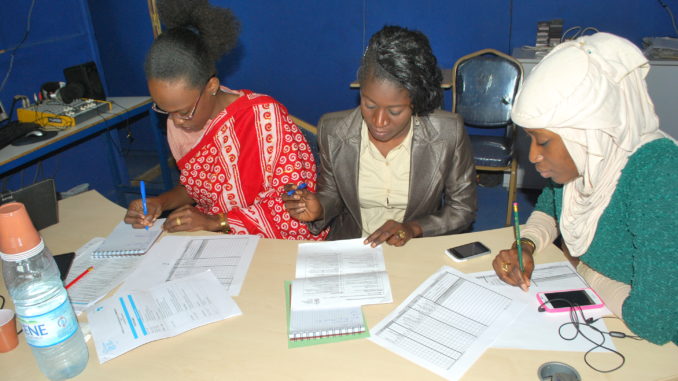
FAMEDEV
Statement on International Day of the Girl
11th October, 2020.
On International Day of the Girl (IDOG), the Inter African Network for Women, Media, Gender and Development (FAMEDEV), joins the global community to boost the voices on girls rights, promote their empowerment, raise awareness of the challenges girls face, and envision a brighter future.
I believe we have all recognised the fact that if girls are well supported during their adolescence period, they have a huge potential to change the world. Once they are empowered, they will be in a better position to serve their societies presently and in the future. They can serve as political leaders, heads of household, mothers, mentors, entrepreneurs, scientists, economists, workers in both public and private institutions, working as as equal partners with their male counterparts. They will be better placed to run the affairs of their countries in a transparent, democratic and corruption free environment.
However, many adolescent girls in Africa continue to encounter multiple challenges and disadvantages that jeopardise their health and education. These challenges range from education, access to reproductive health services and information, access to technology and digital tools and skills to enable them to have access to information, to be able to communicate and express themselves, employment and life skills training, you name it. Due to social norms and inadequate institutions, women and girls continue to be exposed to harmful practices such as child marriage, disruption of their education for marriage, Female Genital Mutilation/Cutting, Gender based violence, child labour, home care giving and doing household chores that curtail their opportunities for education, building social networks and enjoying their childhood.
But there are quite a number of International and regional Instruments that promote the empowerment of girls and women. Notable among them is the Protocol to the African Charter on Human and Peoples’ Rights on the Rights of Women in Africa commonly known as the Maputo Protocol which was adopted by the African Union in Maputo, Mozambique on 11 July 2003, and came into force on 25 November 2005. It is the main regional instrument in Africa for the protection of women and girls’ rights.
The Maputo Protocol places a lot of obligations on the member States. These include eliminating all forms of discrimination against women and girls, through appropriate legislative and institutional measures and prohibiting all forms of harmful practices which negatively affect the human rights of women and girls. It further requires States to protect the dignity of women and girls, and their freedom from exploitation, degradation and violence. States are also required to adopt legislative measures to guarantee women and girls equal opportunities in education, work and career advancement. FAMEDEV, as a member of the Coalition on Solidarity for African Women’s Rights(SOAWR), has been actively engaged in the promotion for the ratification, domestication and implementation of the Maputo Protocol by member state through advocacy, research and training programmes in Africa.
FAMEDEV is committed to the empowerment of women and girls. We believe strongly that the voices of girls must be listened to and amplified. Even though there have been significant improvements in the lives of girls since the adoption of the Beijing Platform for Action in 1995, a lot more remains to be done
to achieve gender parity at all levels of the education system to ensure quality education through lifelong education and training for girls to enable them compete in the labour market.
We have all witnessed the serious challenges that the COVID 19 pandemic has posed for girls education. Apart from some of them dropping out of school, few of them had access to the appropriate technology and electricity to follow classes online. Governments need to seriously invest to remedy the situation. Of equal importance are issues related to poverty, health, climate change, water and sanitation, energy, decent work, economic growth, peace and security, and the needed support for organisations that defend and promote the women and girls equality. To address these issues, there is therefore a need to build and consolidate solidarity, collaboration and strategic partnerships by all stakeholders, with girls and women

Poster un Commentaire